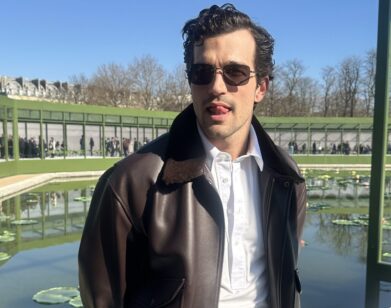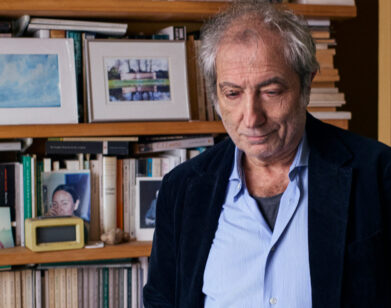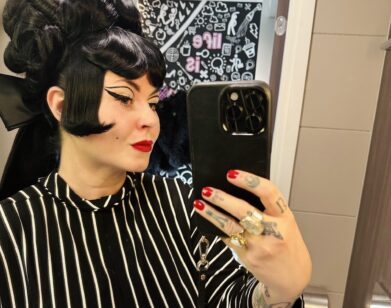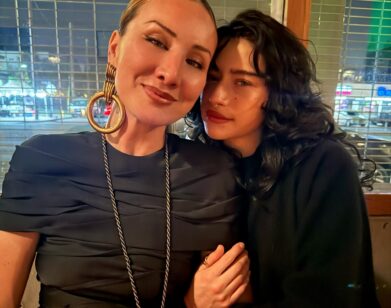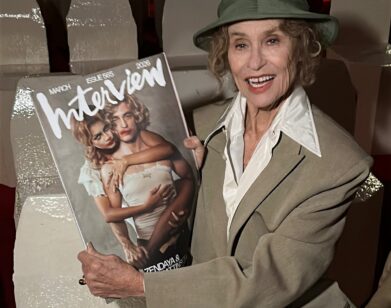Vanessa Manko Goes Long
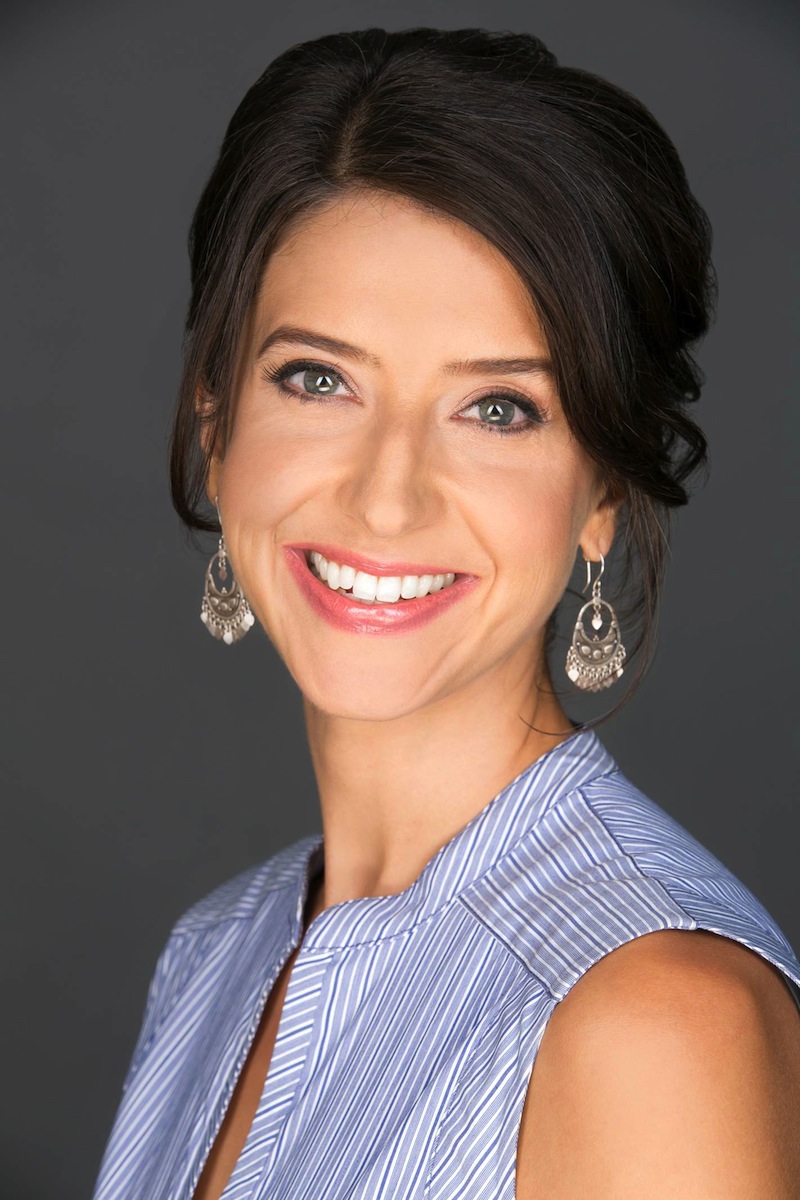
ABOVE: VANESSA MANKO. PHOTO COURTESY OF BEOWULF SHEEHAN
Vanessa Manko’s debut novel The Invention of Exile (Penguin) is a stunning, dream-like exploration of geographical and psychic borders. Austin, a young Russian immigrant, comes to Connecticut and falls in love with Julia. But when he is wrongly classified by American government as a Communist threat, Austin is deported with his devoted wife. Forced back into violence in the motherland he fled, Austin and his growing family grope their way across Europe from country to country, eventually ending up in Mexico City. When Austin’s family is able to return to America, he insists he will follow them. But though the world may have forgotten who Austin is as a human being, the powers that be have not forgotten who he is as an outsider, a foreign name on official documents. Living in exile, Austin is stuck country-less, family-less; alone with his fantasies. Manko weaves through time and place poetically, presenting striking images: Connecticut snow falling silently while policeman raid “communist” clubs, houses sacked and burning in the Russian countryside, an airy lighthouse on the shores of Mexico. Also poignant and pulsing with life are Austin’s emotions; his paranoia, fear, and intense love for the family he has been forced to give up press through every page. We spoke with Manko about living in a constant state of longing, her own lost family, borders, tenacious hope, and reinvention.
ROYAL YOUNG: What happens when we live in a constant state of longing?
VANESSA MANKO: That’s really where the book began for me. I had an image in my mind of a man alone in Mexico City, walking down the street, not connected to anybody. Living in exile, broken and alone. I began to make the empathetic leap into what that would be like. It was partly based and inspired by the life of my grandfather I never knew. I grew up with different versions of the story but never knew the man himself. When I finally did research and began to understand what had happened to him, that I had a grandfather, a Russian in exile living alone in Mexico City, it brought up all sorts of questions.
YOUNG: Do you think writing this novel was a way of reconnecting family that had never been connected for you?
MANKO: Absolutely. It was a way for me to commune with who my grandfather may have been. I found myself empathizing with his sense of solitude. I began to care for him. Writing the book was a way for me to invent who he might have been. In terms of longing, his whole life, his whole being is this yearning to be elsewhere. I wanted to write about what it is like to lead two lives, the one at hand and the one in our minds. I wanted to write about longing and what it is like to connect across borders of time and place.
YOUNG: I found that aspect very relatable, always living in his head somewhere else. Is that something all of us, to some degree, do?
MANKO: Yes, I think that is one element of the human condition. We are the collective sum of our experiences, so our identity is so wrapped up in our past and hopes for the future. Rarely are we able to live in the now. It is something I sort of struggle with, entering that moment of flow every artist thinks about is when I’m writing.
My main character Austin is like that to a higher degree than most other people. He is not able to step into any kind of life for himself in Mexico City. He’s consumed with the past and his ambitions for the future.
YOUNG: I was so impressed by the detail and amount of places he goes to. I’d like to talk about the world pre-internet, which makes it so easy to envision anywhere in the world. For Austin, there is a much bigger unknown element that I found fascinating.
MANKO: I wanted to bring the reader into his sense of displacement and disbelief that he is yet in another country. The novel is broken up into sections which are supposed to mirror what it is like to be a refugee, what it is like to migrate. The shock of how do we set roots down in a new place, how do we invent another kind of life? There’s always an idea that here we can finally build a home. When that doesn’t happen and they are bounced from country to country because of larger world events, there is a sense of disbelief.
YOUNG: What do you think home is?
MANKO: Home is where you know the streets of a neighborhood, and the people, you’re surrounded by your family. It’s those timeless things, where your heart and mind is. It’s about wanting to be known.
YOUNG: When you’re a transient person, bouncing around, passing through you’re never quite seen.
MANKO: Yes.
YOUNG: Austin develops a feeling he doesn’t want to be seen or stand out because of his paranoia. Do you think being seen or known is an integral part of being human? Do we need to be known?
MANKO: Absolutely. Think about when you meet your first best friend or the love of your life, finally there is a connection and understanding that is tremendously important. The book is also about the borders between you and I, about connecting. There are limits between how much we can connect. Austin needs to stay contained within himself. Being invisible is a way of rejecting the life he could have had and still dreams of having. His need to do that comes from not giving up hope of reuniting with his family. Any kind of existence in Mexico City, he is just not going to connect there. Whether he realizes it or not, he does a pretty good job at that.
YOUNG: Right. He has a fierce loyalty to a fantasy.
MANKO: Yes! To the life he had imagined.
YOUNG: Does tenacious hope ever become damaging?
MANKO: I would say yes. There is a scene where he is rejected once again from the American Embassy, he goes to his local cantina and the bartender says, “You’re an inventor. Invent a new life. You’re in Mexico City, is it such a bad place to be?”
YOUNG: At some point, being faithful to a fantasy is damaging and in a way loving and being true to love is living and moving on.
MANKO: Exactly. Recognizing that is something that still lives in my past. I am able to have that. There are glimmers of love and hope and possibility that stare Austin in the face, but he is still unable to choose them. I wanted him to be faithful to his wife and past, but also there could be possibilities for him. He indeed could invent another life if he wanted.
VANESSA MANKO’S THE INVENTION OF EXILE IS OUT NOW.

